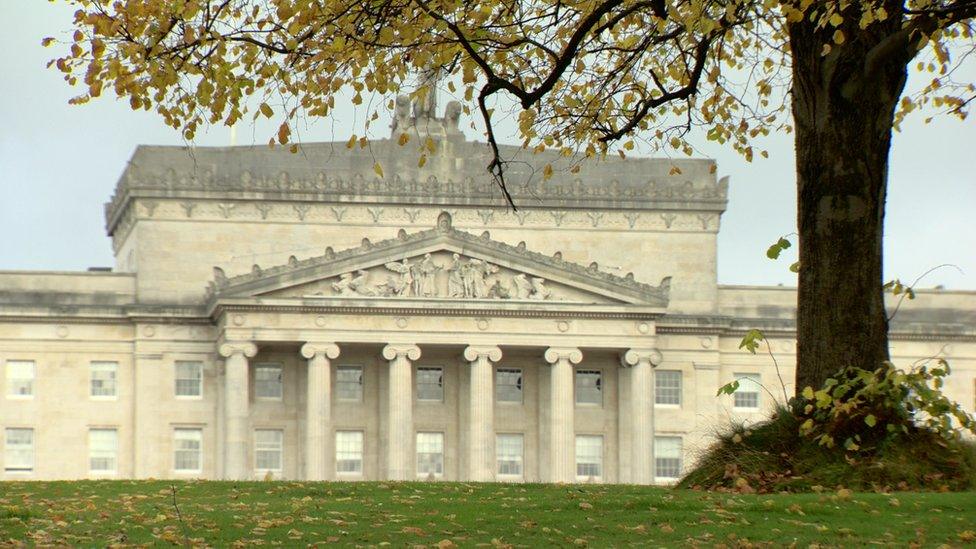Stormont deal: Failure on past 'disappointing for PSNI and victims', says Harris
- Published
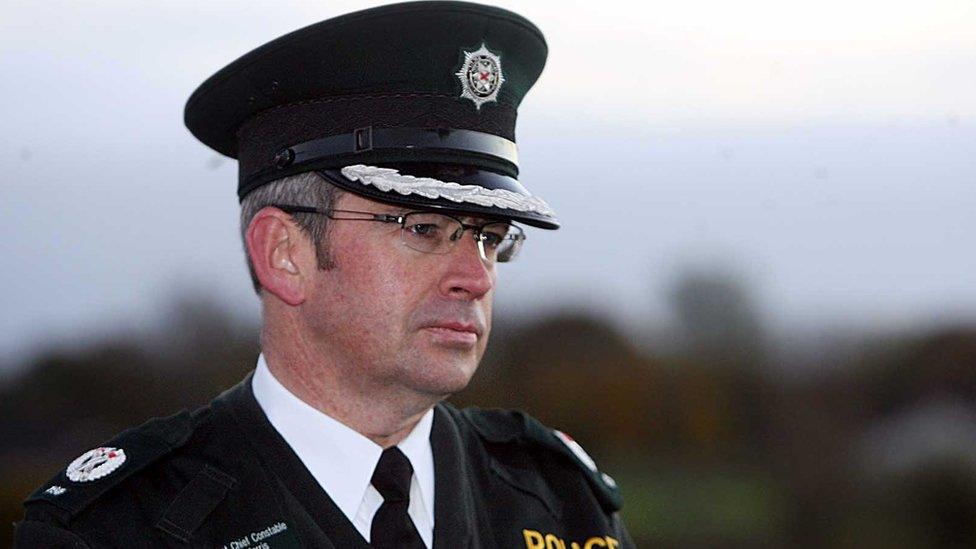
DCC Drew Harris said the PSNI would have to use its "finite resources are used in the most effective manner"
A senior police officer has said he is disappointed the latest Northern Ireland political agreement has not addressed the legacy of the Troubles.
A deal was made by the two main parties and the British and Irish governments to resolve a crisis at Stormont.
Solutions were found on issues over paramilitarism and welfare reform.
But Deputy Chief Constable Drew Harris said a lack of consensus over how to deal with the past was a let-down to police and Troubles victims' families.
Responsibility
DCC Harris said an extra £160m of government funding to tackle dissident republicans that was agreed in the deal was much needed.
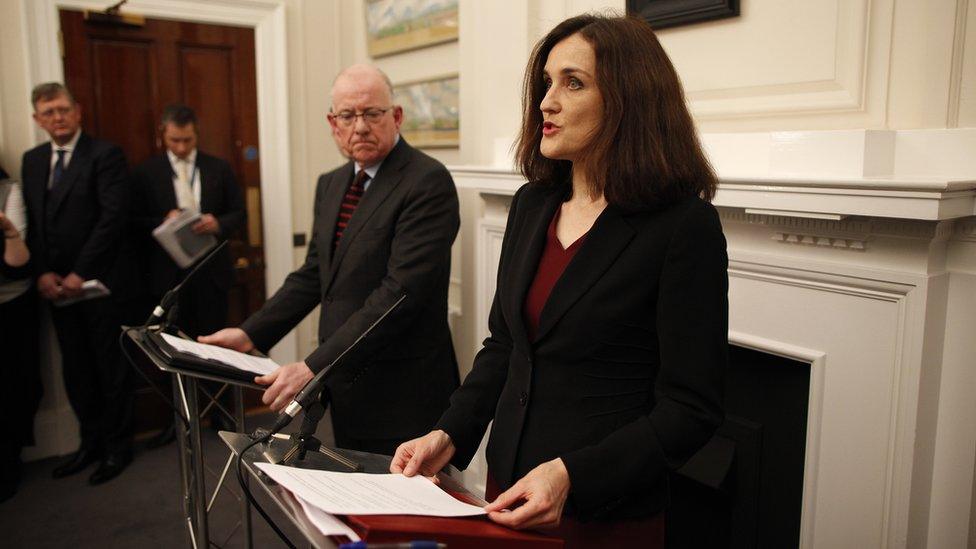
Theresa Villiers is to meet relatives of Troubles victims to discuss their concerns over the deal
He added the agreement's initiatives to tackle paramilitarism and organised crime were also positive.
But a proposed new independent Historical Investigations Unit, which would have taken on the Police Service of Northern Ireland's (PSNI) responsibility for outstanding Troubles murder investigations, has not yet been approved.
DCC Harris said: "We are on record as saying the formation of a Historical Investigations Unit would provide an opportunity for a more structured and coherent approach to dealing with the past, allowing the PSNI to concentrate primarily on keeping people safe today."
Classified
He said that in absence of that body the PSNI would have to ensure its "finite resources are used in the most effective manner".
"We must balance keeping people safe today with our continued duties in relation to the past.
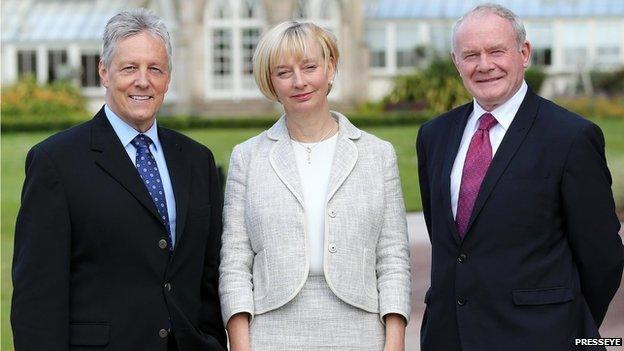
Judith Thompson - pictured with Peter Robinson and Martin McGuinness - said victims deserved more respect
"The reality is the financial challenges facing us will continue to have a direct impact on how we respond to the demands of the past and the pace at which those demands can be serviced."
Sinn Féin's Martin McGuinness said talks on the legacy of the past failed because the government would not commit to full disclosure of classified documents relating to Troubles incidents on national security grounds.
He added: "That pretext for blocking disclosure is clearly nonsense as much of the information families are looking for is related to events 30 to 40 years ago."
Shunted
Northern Ireland Secretary Theresa Villiers, who helped broker the agreement, is to meet relatives of Troubles victims to discuss their concerns over the deal.
It had been a "bitter pill for victims to swallow", according the the victims' commissioner Judith Thompson.
She said victims "deserve respect and consideration and they cannot be shunted off into a dead end".
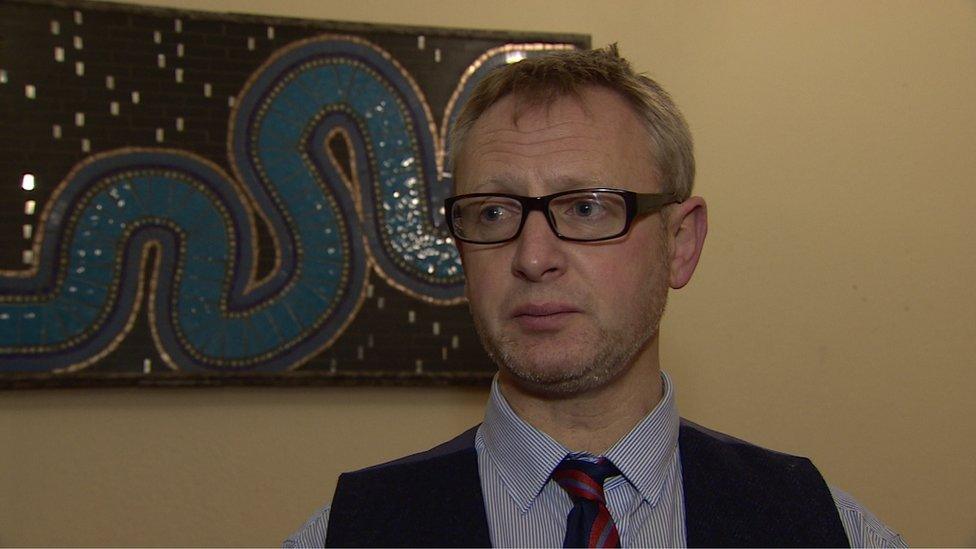
Alan McBride said the deal had been "another opportunity wasted" as far as victims were concerned
"It is not good enough to build up hopes for the most comprehensive set of proposals yet to address victims' and survivors' needs and then fail to deliver."
Frustration
Ms Thompson added that politicians must give a timescale for "the issues that are being put in the 'too difficult' box once again".
Alan McBride, whose wife was killed in the IRA's 1993 bombing of a fishmonger's on Belfast's Shankill Road, said he was uncertain whether legacy issues would ever be resolved.
"My frustration is that they're not going to be able to agree on this, so therefore there's going to be another opportunity wasted," he said.
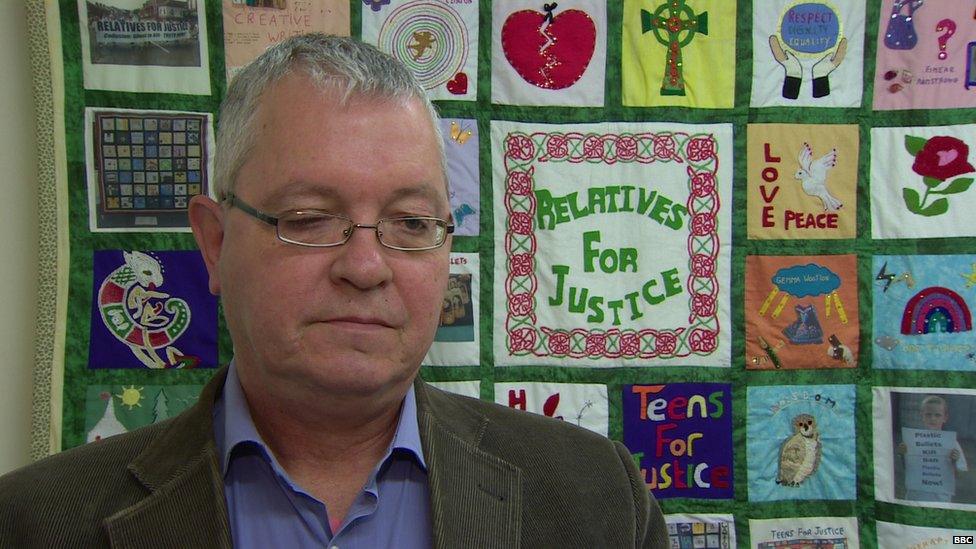
Mike Ritchie said pressure would remain on politicians to deal with legacy issues
"There is talking still on going, and that has got to be welcomed, because we have to give out hope to victims and survivors."
Pressure
Mike Ritchie, a case work manager for the Relatives for Justice victims' group, said that while he was disappointed with the outcome of the political negotiations, he would prefer no deal to "a bad deal".
"To set up a bad process again would be very difficult for victims' families," Mr Ritchie said.
"If we're going to have a deal let's have a good deal."
He added that pressure would remain on Northern Ireland's politicians to deal with legacy issues.
"This isn't going away. I think that we'll be back talking about this in due course."
- Published18 November 2015
